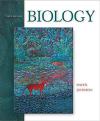1
A) hexaploid B) tetraploid C) triploid D) diploid 2
A) the frequency of different sequences B) the direction the sequences face (left or right) C) the number of different sequences involved D) the number of repetitions of sequences 3
A) microscope slide B) circuit board C) silicone chip D) membrane 4
A) all proteins in an organism B) gene-transcribing proteins C) structural proteins of a cell D) regulating proteins in humans 5
A) gene alteration B) temporal modification C) somaclonal variation D) culture shock 6
A) a shield B) a callus C) an embryoid D) an aggregate E) a plasmodium 7
A) 15 B) 25 C) 45 D) 75 E) 95 8
A) calluses B) pollen C) protoplasts D) organs E) cell suspensions 9
A) cell suspension culture B) callus culture C) anther / pollen culture D) plant organ culture E) protoplast culture 10
A) separate from nuclear DNA B) coded by the nucleus C) paternally inherited D) a subset of nuclear DNA E) transformed nuclear DNA 11
A) organogenesis B) b. electroporation C) differentiation D) aggregation E) disaggregation 12
A) encoding most genes B) encoding rRNA C) encoding a single gene D) encoding tRNA E) unknown 13
A) PCR denaturase B) QTL polymerase C) LCP lipase D) QLR esterase E) ACP desaturase 14
A) yogurt B) coconut oil C) palm oil D) cocoa butter E) margarine 15
A) 10 B) 20 C) 50 D) 60 E) 70 16
A) suspension cultures B) callus cultures C) organ cultures D) anther pollen cultures E) protoplast cultures 17
A) encoding most genes B) encoding rRNA C) encoding a single gene D) encoding tRNA E) unknown 18
A) anther / pollen culture B) plant organ culture C) protoplast culture D) callus culture E) cell suspension culture 19
A) two simple tandem arrays B) two repeat / repeat interspersions C) two identical inverted repeats D) two compound tandem arrays E) two repeat / single-copy interspersions 20
A) RFLP and QTL B) AFLP and PCR C) PCR and QTL D) RFLP and AFLP E) AFLP and QTL 21
A) Avena sativa B) Petunia porodii C) Tulipa spp. D) Arabidopsis thaliana E) Pisum sativum 22
A) rice B) corn C) barley D) wheat E) soy beans 23
A) calluses B) explants C) plantlets D) protoplasts E) anthers 24
A) magnetism B) light C) enzymes D) ultrasound E) electricity 25
A) castor bean B) sunflower C) oats D) Arabidopsis E) pea 26
A) encoding most genes B) encoding rRNA C) encoding a single gene D) encoding tRNA E) unknown 27
A) codes for rRNA B) codes for proteins required for plant metabolism C) are called transposable elements D) have no known function E) function as enhancers and promoters 28
A) simple tandem array-repetitive sequence in the same orientation B) compound tandem array-repetitive sequence in the same orientation C) inverted repeats-repetitive sequence in the opposite orientation D) single-copy gene-sequence is not repeated E) all are correctly matched 29
A) is less complex and less diverse than the nuclear DNA in plants B) has many prokaryotic features C) is not subject to modifications caused by transposable elements D) is used to trace evolutionary patterns in plants E) all of the above 30
A) the rice genome is very unique and contains genes not found in other plants B) the rice genome is very large compared to the DNA of other grains and so more genes will be identified C) it can identify genes associated with disease resistance, growth capacity, etc. D) it has a rapid life cycle and has many identifiable mutations E) all of the above 31
A) because each cell contains the entire genome B) because plant cells can dedifferentiate and revert back to seeds C) because plant cells are able to express genes that weren't previously expressed D) both a and b E) both b and c 32
A) cell suspension culture-somatic cell embryogenesis B) protoplast isolation-hybrids C) homozygous plants-anther/pollen culture D) callus culture-differentiated tissues regenerate E) all are correctly matched 33
A) when a plant grown in culture generates increased genetic variation B) when plant cells in suspension cultures form individual embryos that can grow into plants C) the incorporation of foreign DNA into the plant genome D) when dedifferentiated callus cells develop into tissue that is different from the original source tissue E) none of the above 34
A) True B) False 35
A) True B) False 36
A) True B) False 37
A) True B) False



 2002 McGraw-Hill Higher Education
2002 McGraw-Hill Higher Education

 2002 McGraw-Hill Higher Education
2002 McGraw-Hill Higher Education